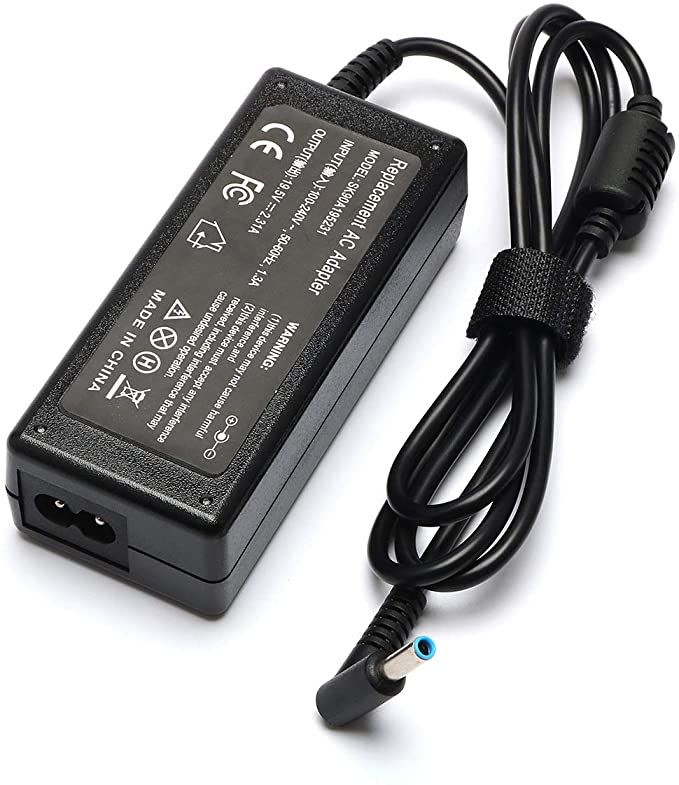
A laptop charger is an important peripheral that charges your laptop and also supplies it with power for its functioning and to charge its battery. People may suppose that chargers are quite a simple thing, however to select the proper charging device or to take care of the existing one can make a significant impact on the performance of the laptop.
In this post, you will learn laptop charger basics, charger types, how to select the appropriate charger for your laptop, and guidelines on how to take when to care for them for longer life.
1. What is a Laptop Charger?
A laptop charger is a device which takes electrical energy either from a wall socket or another source and that is suitable for your laptop. Most of the time it entails a power brick, a cable that connects to the laptop as well as a plug towards the wall socket. The primary role of a laptop charger is to avail power to the battery of a laptop and directly to the laptop in case it is connected.
2. Types of Laptop Chargers
Laptop chargers differ with the brand and model of the laptop and whether it comes with a connection or not. Here are the most common types: Here are the most common types:
Standard Chargers: These are made for specific laptops and they are pre-installed with the laptop when it is bought. Often, every brand has its look, and it would be impractical to meet a Dell, HP, or Lenovo laptop with somebody’s own design.
Universal Chargers: These chargers have different adapters, which are attached to the standard charger to fit into the variable laptops. These are convenient when you own multiple laptops or misplace the first charger is.
USB-C Chargers: Most of the modern laptops can be charged using a USB-C port. Such chargers are portable and most of them can also charge other products like mobile devices and tablets.
3. How to Choose the Right Laptop Charger
Picking the right charger for your laptop should be done rigorously in order not to cause harm to the laptop’s battery health and its overall charging process. Here are some key factors to consider:Here are some key factors to consider:
Compatibility: Ensure charger you intend to buy corresponds to the laptop model. The voltage, current that it has to deliver (amps) and connectors should match that of the original charger that it is replacing.
Power Output: Charger Wattage: Make sure you check the Wattage (W) of the charger. As for the wattage of a charger, it may be too low and lead to overheat or too high and the charging time would be too long. The manufacturer’s recommended charger is the best option to go for.
Brand: If possible, opt for the chargers manufactured by the laptop maker so that you get the best quality charger. Third party chargers should be of high quality and the best possible in the market.
4. Common Laptop Charger Problems
However laptop chargers just like any other tool or gadget that we come across in our day to day life can develop some issues. Here are some common issues and their possible solutions:Here are some common issues and their possible solutions:
Frayed or Broken Cable: It was established that if the cable is faulty the charger is rendered dysfunctional. In this case it would be advisable to replace it with another charger to take care of any electrical danger.
Loose Connection: At times you find that the charging point or the connector get slightly pulled out of place and therefore only charges the phone at intervals. Ensure that all the connection cables are properly connected and if not contact an expert on electronics.
Overheating: If your charger is hot then it can be that the voltage is wrong or that your charger is bad. In this respect, it should be replaced as soon as possible so you do not end up damaging your laptop.
5. Tips to Extend the Life of Your Laptop Charger
To ensure your laptop charger lasts a long time, follow these simple tips:To ensure your laptop charger lasts a long time, follow these simple tips:
Avoid Wrapping Tightly: Don’t wind the charger cable too closely because this will not only damage the wires inside, but also affect its conductivity.
Keep It Cool: Do not put the charger on delicate stuff such as bed to avoid covering their vents since it promotes their heating.
Unplug When Not in Use: If you are not planning to use the charger, it is recommended that you detach it because it is also capable of getting damage.
Finale
A charger that is used for laptops is as important as the laptop itself to make it operational. Selecting the right one and ensuring that it is well maintained will help to ensure that your laptop works well it shall also save you from having to spend cash in replacing the wrong one. If you are in need of a new charger or if you are just looking for ways on how to maintain your current charger, it is important that learn the essential facts about laptop chargers.
For more tips, guides and product reviews check out laptoptechinfo.com and learn more about choosing the right technology for you!
To learn about Technology please visit at TechnologyTechInfo.com!

